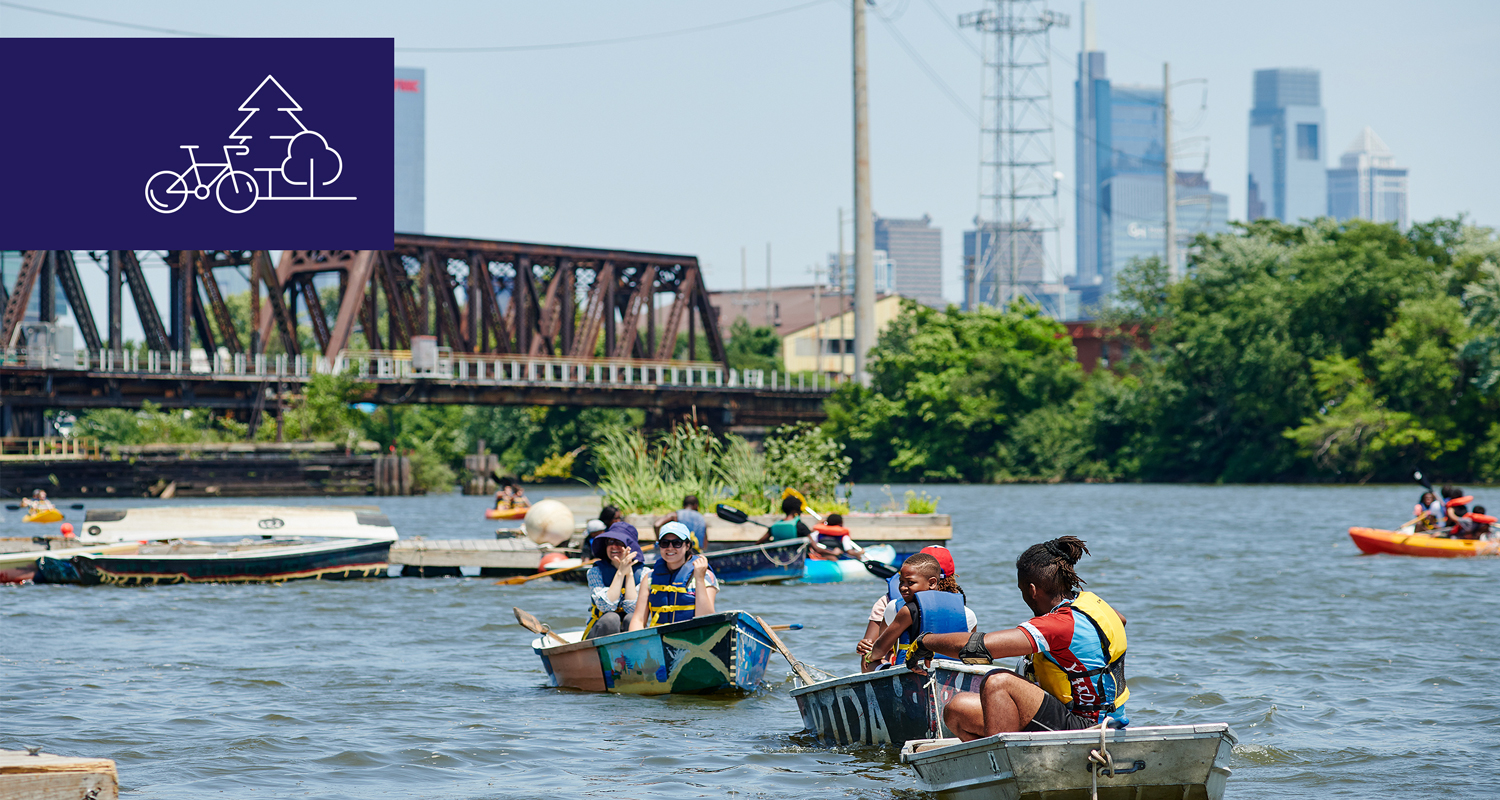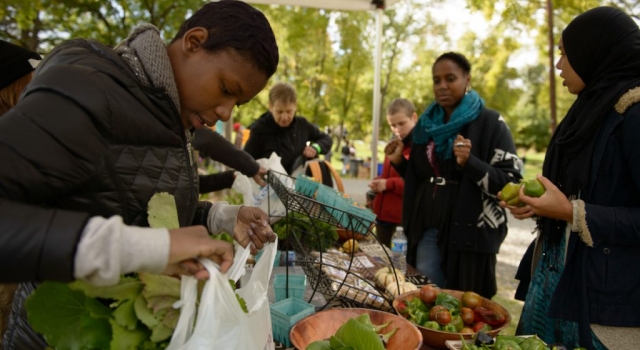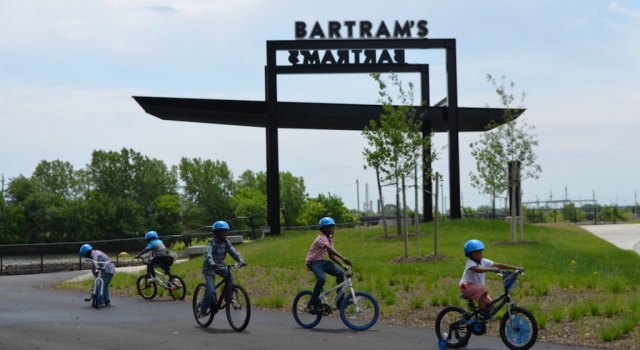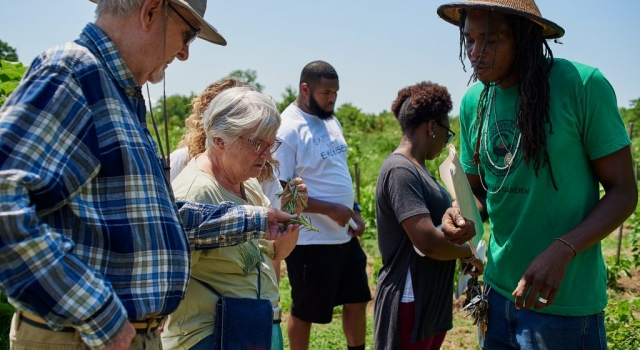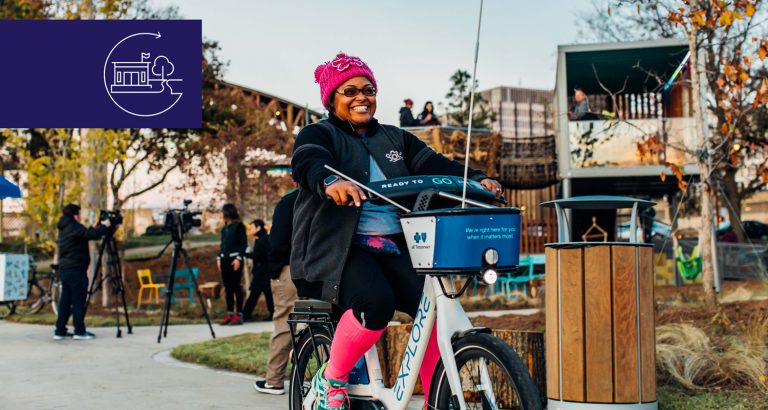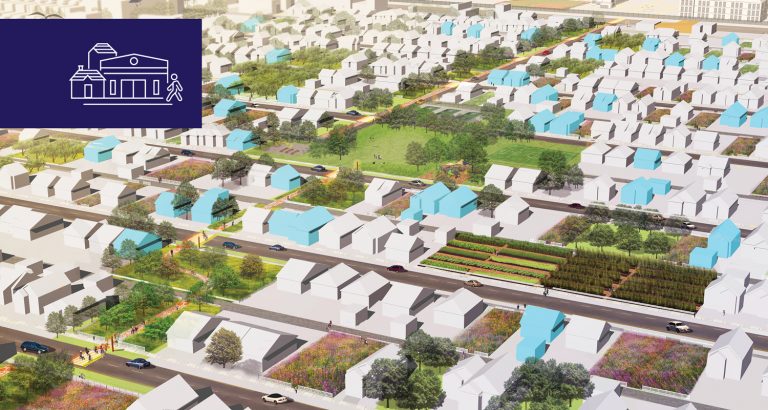When people enjoy their natural surroundings and share these experiences with others, they strengthen their connection to nature, their neighborhood and the broader civic community.
With over 45 acres, a botanical garden, and a working farm, Bartram’s Garden offers Philadelphia residents a number of ways to connect with nature. Situated next to a predominantly low-income community in Southwest Philadelphia and easily accessible via transit, bike, or on foot, the park provides direct access to natural beauty and open space. The 4-acre Sankofa Community Farm, powered by volunteers and paid high school interns, grows more than 15,000 pounds of fresh produce each year. The farm hosts weekly farm stands to bring this produce accessible to the community and provides space for local families to plants their own gardens as well. Visitors experience the natural world firsthand through culturally relevant programming, while staff and volunteers share their expertise and create a welcoming atmosphere for all.
Bartram’s Garden was established as a public park in 1893 but for much of that history, many nearby believed that it was a private estate. In recent years, staff at Bartram’s Garden have worked to dispel this misconception by working with the surrounding community to figure out how the park can best meet its needs. The resulting programming has proven popular with those in the neighborhood. For example, the Garden’s community boatshare program lets people of all ages learn how to enjoy the nearby Schuylkill River, regardless of prior experience on the water. On Saturdays, visitors can use rowboats and kayaks at no cost, while weekly sunset paddles and guided kayak tours encourage people to get out on the water. By demystifying these spaces and providing programming that draws people in, Bartram’s Garden makes it easier for Southwest residents to engage with the natural world right next door.
LESSONS LEARNED
Paying attention to residents’ needs can create opportunities for connection to nature. Putting residents’ needs at the center of programming decisions helps ensure that activities and events resonate with the surrounding community. For example, when neighborhood kids started spending more time at the park in the summer, Bartram’s Garden created a summer camp program for them. This programming strengthened campers’ sense of belonging, reduced vandalism and helped participants learn more about the environment.
Shared experience and expertise demystify natural spaces. Disconnection from nature often stems from misconceptions, like the notion that park space is off-limits or the perceived dangers of the Schuylkill River. Having technical experts on hand to dispel false impressions and teach people new skills increase people’s familiarity with the outdoors and let them experience nature for themselves.
Case studies crafted in partnership with The Aspen Institute’s Center for Urban Innovation. With special thanks to Jennifer Bradley and Jessica Lee.
Lead photo provided by Albert Yee.
